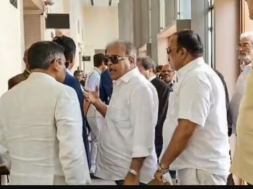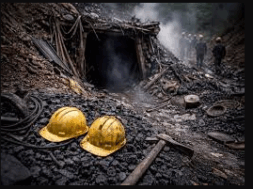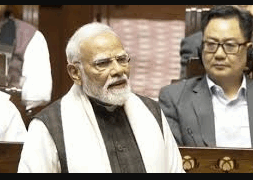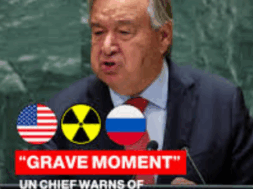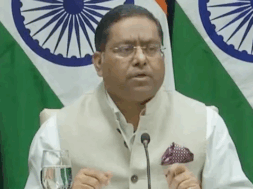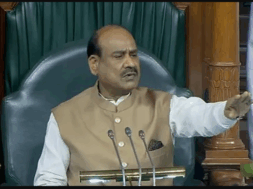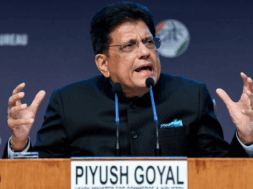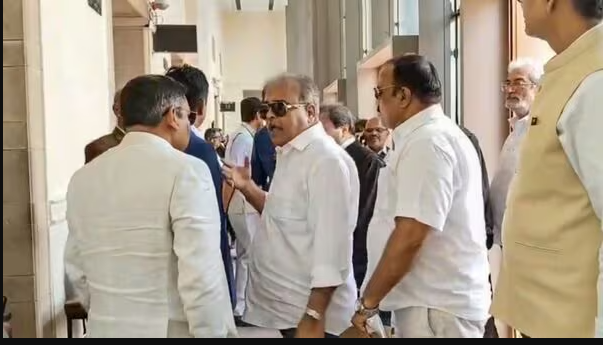
Manas Dasgupta
NEW DELHI, Mar 27: Six bar associations from five states met the Chief Justice of India Sanjiv Khanna and some other senior members of the Supreme Court Collegium on the issue of alleged recovery of cash from the official residence of the Delhi High Court judge Justice Yashwant Varma demanding criminal investigation against him.
The delegation comprising the leaders of the bar associations of the High Courts of Allahabad, Gujarat, Kerala, Jabalpur, Karnataka and Lucknow, presented a list of four demands, including the start of a criminal investigation against the judge.
Anil Tiwari, the President of the Allahabad bar association, said the Collegium, led by Chief Justice Sanjiv Khanna, gave them a patient hearing, and said they would consider their demands. He, however, did not clarify if the collegium has agreed to cancel its recommendations to the government to repatriate the tainted judge to his parent organisations the Allahabad High Court or if the Allahabad bar association has agreed to withdraw its call for indefinite strike if the proposal to transfer him to Allahabad continued.
“We made four demands. First, the transfer should be cancelled. Second and third, judicial and administrative work should not be given (to Justice Varma, pending a complete inquiry), and fourth, a criminal investigation should begin immediately,” Mr Tiwari said.
The senior lawyer played down talk of being dissatisfied with the Collegium’s response, saying, “… if I were not satisfied, I would have made such a statement before the media. But I am satisfied. Whatever I wanted to communicate to the Chief Justice I have done that…” “The Collegium listened carefully and said ‘each point raised will be considered… don’t worry at all’. This is a big statement by five senior judges,” he told reporters after the meeting.
On calling off the strike, he only said, “A strike is not the decision of one person.” “Going on a strike is the decision of 35,000 lawyers who form the General Assembly (of the Association). This decision was taken by them. As President, it is my duty to communicate this latest development… and then they will take a decision,” Mr Tiwari said.
The Association, he said, understands its responsibilities – to the judiciary and the people. “I am a positive man. My feeling is that since the Chief Justice has said he will take a decision, I say we should wait for that decision,” Mr Tiwari added.
The Supreme Court – which has acknowledged the gravity of the issue and the impact on the people’s faith in the judiciary, has set up an in-house inquiry by a committee consisting of the chief justices of the Haryana and Punjab, Himachal Pradesh High Courts and a judge of the Karnataka High Court.
The committee has already taken steps, which includes sealing the outhouse where the money was found and speaking to Delhi Fire Services chief Atul Garg, who was initially quoted by the media as saying no money was found. He later said he had never made such a statement. The committee also inspected Justice Varma’s home in central Delhi.
The in-house procedure was approved by the Supreme Court in 1999. It is based on the spirit of two important charters governing judicial ethics — the Restatement of Values of Judicial Life and the Bangalore Principles of 2002. The ‘Restatement of Values of Judicial Life’ is the primary code of ethics governing judicial behaviour adopted by the Supreme Court on May 7, 1997.
The very first rule of the code is that the behaviour of a judge must “reaffirm the people’s faith in the impartiality of the judiciary”. It underscores that “any act of a judge of the Supreme Court or a High Court, whether in official or personal capacity, which erodes the credibility of this perception has to be avoided.”
The Bangalore Principles of Judicial Conduct 2002 presents a framework to regulate judicial conduct. It requires a judge to ensure that his or her conduct, both in and out of court, maintains and enhances the confidence of the public, the legal profession and litigants in the impartiality of the judge and of the judiciary.
Meanwhile, the Supreme Court on Wednesday refused an urgent hearing for a petition seeking directions to Delhi Police to take over the investigation into the burnt bundles of cash. The petitioners also challenged the jurisdiction of the Supreme Court-appointed committee. The Chief Justice-led bench said it would hear the plea but not on an urgent basis.
The recovery of the cash has also led to a political discussion, with the union government on Tuesday night reaching out to all political parties to hear their views and concerns. This was after Rajya Sabha Chair Jagdeep Dhankhar’s met various party reps, including those from the Congress, Bengal Chief Minister Mamata Banerjee’s Trinamool, Tamil Nadu’s ruling DMK, and the Shiv Sena faction led by ex-Maharashtra Chief Minister Uddhav Thackeray.
